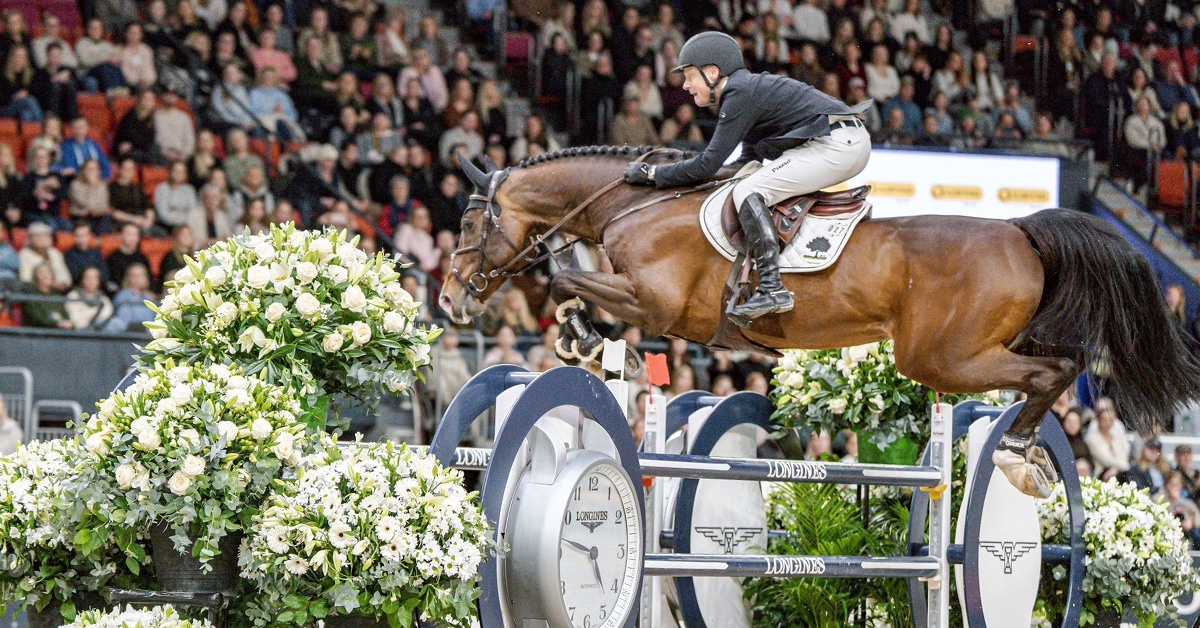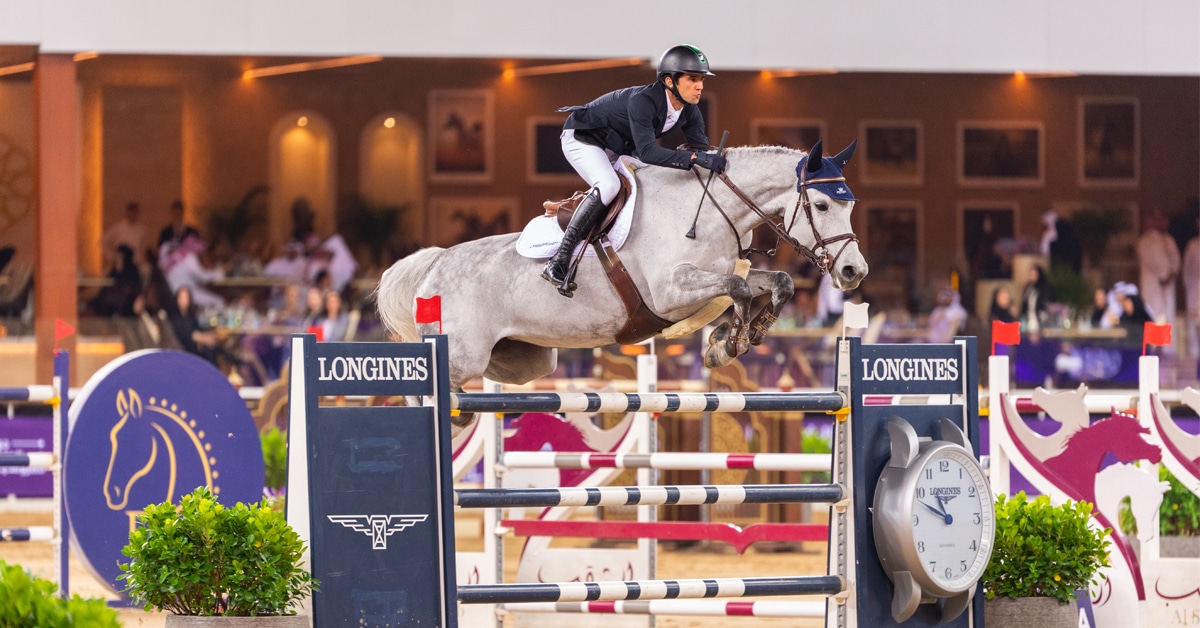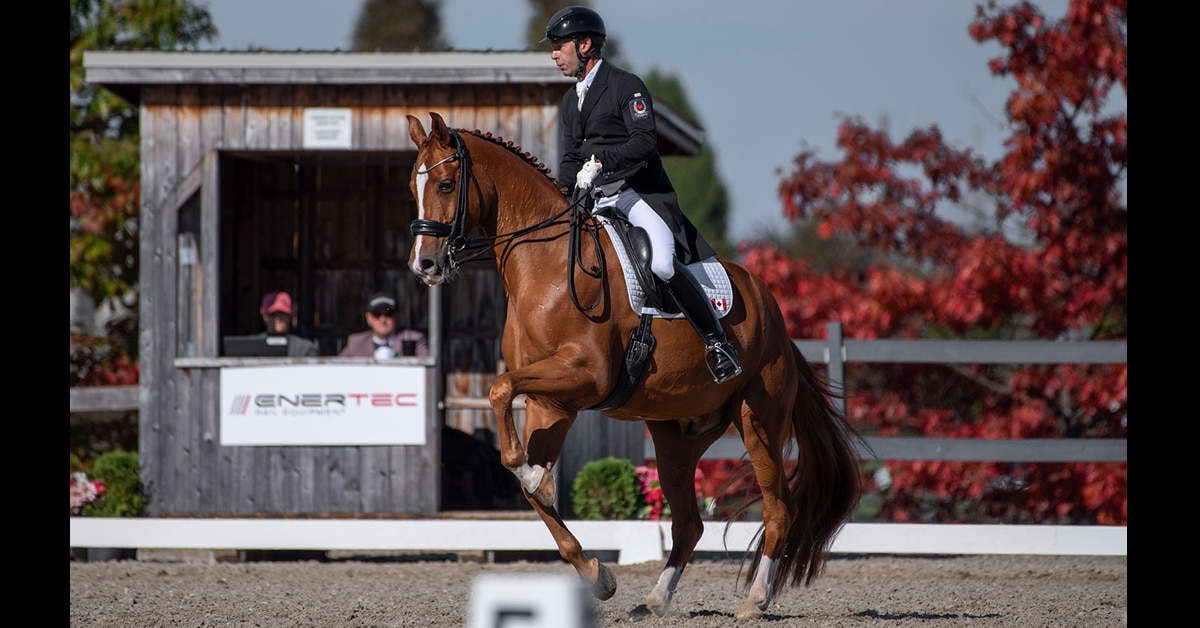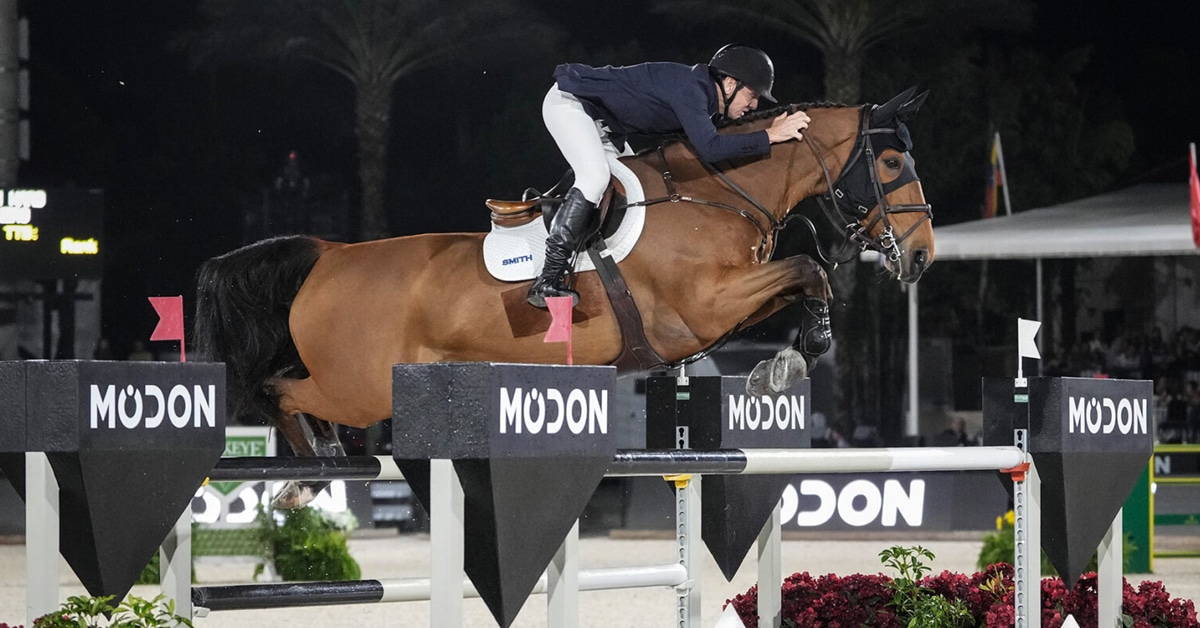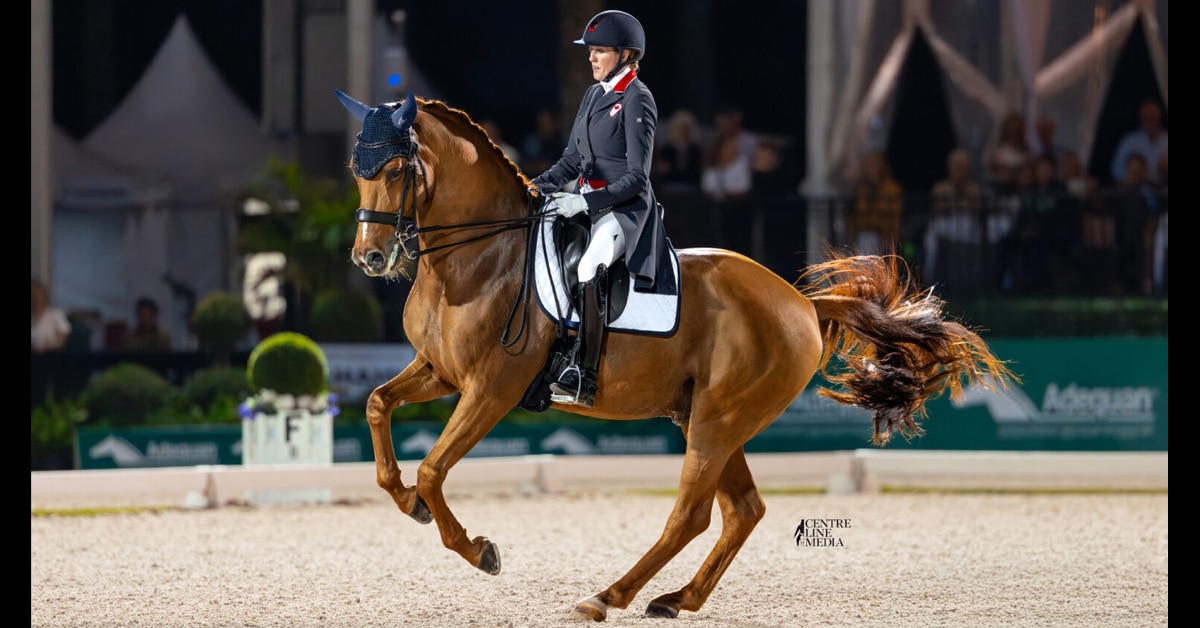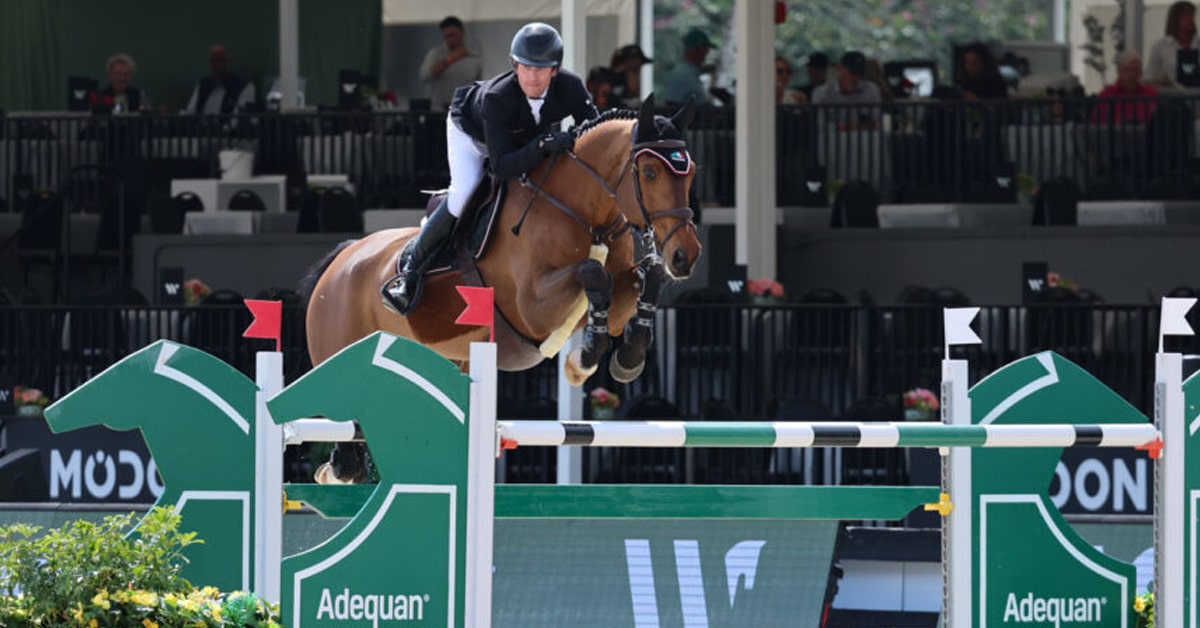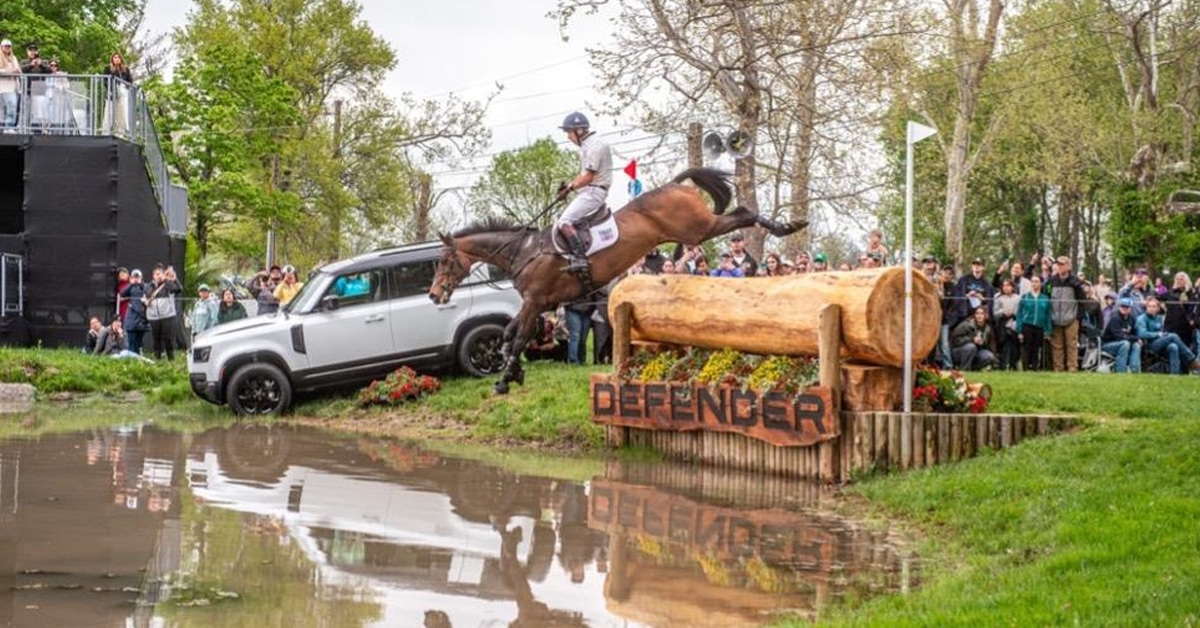Qatar has lost its team jumping place at Tokyo, amid allegations of sabotage by Morocco who now obtain the Olympic place.
Qatar team members Sheikh Ali Al Thani and Bassem Mohammed tested positive to Carboxy-THC (Cannabis metabolite.) They claimed that the supposedly harmless shisha [a pipe for smoking flavoured tobacco which passes the smoke through water] smoked while competing at the Olympic qualifying show in Rabat last fall (October 10-13) must have been “spiked” by rivals. A criminal complaint has been lodged with the Moroccan authorities.
The FEI Tribunal today (February 17) published a partial decision confirming Qatar’s disqualification from Tokyo and awarding the Middle East and Africa regional team place to the next best placed team, Morocco.
The FEI said this hearing, to determine disqualification only, had to take place before the February 17 deadline for Olympic quota allocation, and to notify the affected national federations.
The FEI Legal team argued that under the ADRHAs (rider anti-doping rules), violation from in-competition testing automatically leads to disqualification of the result. The Court of Arbitration for Sport (CAS) refers to this as “Strict Liability”.
The FEI was not disqualifying Qatar’s team result as such, but because two of its four riders were individually disqualified, naturally Qatar had no team result. Any further sanctions on the pair will be decided later, when mitigating circumstances will be taken into account.
Cannabis is prohibited by the World Anti Doping Agency. The estimated concentration was 404 ng/mL for Sheik Ali and 2955 ng/mL for Mohammed, so exceeded the 180 ng/mL limit.
The riders say the only plausible explanation was unknowing exposure to cannabis in the hotel’s shisha bar. Smoking shisha was very popular in Qatar, and particularly common for professional athletes to relax. While shisha was also popular in Morocco, a substance named “kif” ‒ Moroccan cannabis ‒ was often used instead of, or with, shisha tobacco. The Qatar team manager had taken precautions to assure that only shisha tobacco would be used.
It was “very implausible” they knowingly put themselves and the team in such a situation. To use a substance that “did not even enhance the performance would be stupid.” They believed the kif was deliberately added to their shisha(s) and had filed a criminal complaint. These circumstances are “exceptional;” the Tribunal could not eliminate the team until the final decision on the criminal complaint. The FEI would not be able to guarantee Morocco was not involved in tampering.
The 27-page decision notice contains extensive legal argument from the riders’ counsel about the difficulties preparing for a hearing in such a short time. They were unhappy to be denied a “public” in-person hearing (it was conducted by teleconference.)
On January 29, the riders were still waiting for full laboratory packages of A and B samples from the FEI, essential for their expert to assess to whether sample analysis was duly executed.
Their rights to a fair hearing were violated, and the right of a professional athlete to carry out his occupation was without doubt a “civil right” in nature. The “urgency” invoked by the FEI “was completely artificial and self-imposed, in essence because the qualification timeline for entries for the 2020 Tokyo Olympic Games was only on 6 July 2020.”
In handing down the decision, the Tribunal noted the athletes remain free to ride. At this point they had not proven or even argued that riding is their occupation and main living. Given the time constraints, and the fact the most important points are legal arguments, there was “certainly no need for an in-person hearing.”
The Tribunal also clarified it did not matter whether the Prohibited Substance had any performance enhancing effect; Carboxy-THC is on the 2019 WADA Prohibited List. The Tribunal added it would “be against the spirit of sport if the individual results of the athletes are disqualified, but those same results which were achieved with a prohibited substance in the athletes’ system, could still be counted for the team results.”
The partial decision can be appealed to CAS within 21 days.
More News
